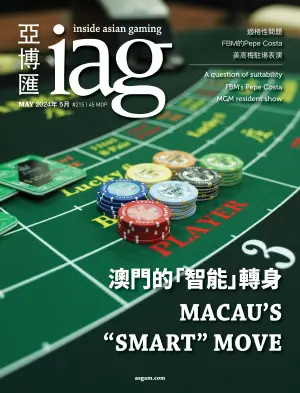Japan’s prefectural governments may want to reconsider some of the onerous developer impact fee requirements imposed on potential operating partners as a condition to apply for one of the country’s three coveted casino licenses.
At last, Japan’s much delayed licensing process appeared to experience forward movement with Nagasaki prefecture announcing last week that five gaming operators have registered to participate in the government’s evaluation and selection process – the winner gaining the right to partner with the prefecture for the chance to acquire a casino license issued by the national government. However, whatever momentum was initially created was immediately met with inertia as it was revealed the operator would be required to contribute over US$140 million to Nagasaki for traffic improvements near the candidate site.
A similar exaction has also been suggested for the MGM Resorts – Orix consortium undertaking the potential integrated resort development on Osaka’s Yumeshima where the subway connection to the artificial island is estimated to cost nearly US$200 million. Yet, while the sums appear similar in size, the Nagasaki impact could be as much as 10% of the total project cost – potentially more than triple the Osaka amounts.
While heralded as a potential boon for regional administrations, the Japanese government’s casino initiative remains wildly unpopular amongst most of its populace. The lack of domestic enthusiasm has led to heavy-handed edicts from elected officials that are politically expedient but not practical in nature – and will unnecessarily encumber investor developers for infrastructure improvements that should otherwise be government responsibilities.
While not entirely surprising, it is another example of a regional government’s misunderstanding of how major IR projects are developed, funded and successfully operated. Rather than piling on arduous costs that ultimately reduce the chance of successful project completion, prefectures could consider providing operators with government loans or other incentives that prioritize a project’s completion – opening under budget and therefore on time, thereby ensuring valuable tax revenue is generated as soon as possible.
Nagasaki may do well to consider why the industry’s heaviest hitters including Wynn Resorts, Galaxy Entertainment Group and Genting Singapore have all passed on participating in their evaluation process. More likely than not, Sasebo City’s remote location, available market, potential development costs and associated projected returns didn’t appeal to those venerable companies’ internal investment requirements.
While there may be some historical rationale for choosing the prefecture as a potential IR candidate host, it probably has more to do with its further afield location rather than any inherent competitive advantage. During the samurai era, due to its southernmost and isolated position amongst Japan’s main islands, Kyushu Island’s Nagasaki zone was the sole district where trading with foreign countries was allowed. Regulators would monitor and limit foreign country activity to only a small portion of the jurisdiction on pain of arrest, imprisonment and death.
Tax revenue and other import duties were collected, yet citizens from other countries were unable to enter the area. In that same vernacular, situating an IR in the outlying, westernmost part of Kyushu Island may be convenient in limiting domestic tourism, its associated business turnover and allowing the national police a suitable vantagepoint to monitor potential illicit activity. But certainly, it would not be as lucrative as positioning the project near a major metropolitan area – providing an indication of where authorities’ true priorities lie.
If the Japanese government is committed to seeing its IRs succeed, they will work in tandem with the industry as a trusted partner – assisting with financing, relaxing rigid regulations, and collaborating in order to ensure successful project completion – thereby eliminating their regional governments’ pound of flesh demands in the form of upfront and prohibitive developer exactions.






























